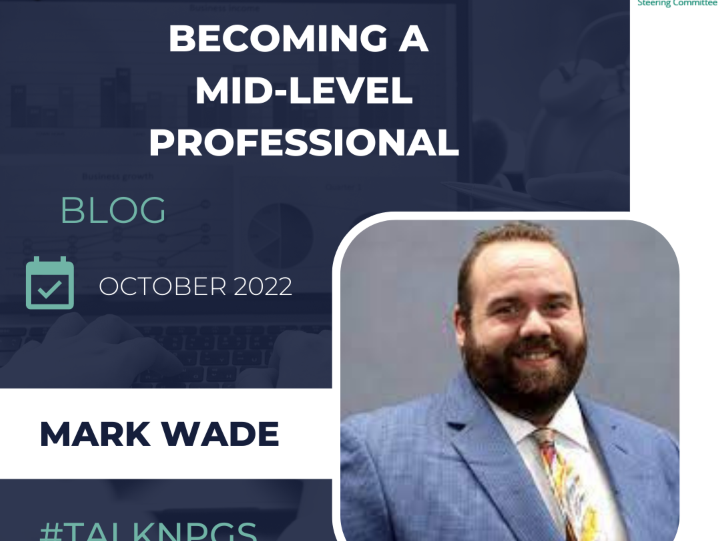
Becoming a Mid-Level Professional
New Professionals and Graduate Students New Professional
October 11, 2022
While Careers in Student Affairs Month (CSAM) is filled with opportunities to engage undergraduates and graduates about the numerous opportunities within higher education and student affairs, it’s seldom that blog posts, instagram takeovers, or any sort of coverage is given to the transition from new professional to mid-level professional. Some professionals may expect that new professionals that are approaching the end of their fifth year know their next steps and don’t necessarily need to hear the “how to’s” of becoming a mid-level professional, but the question is “how do I know?”
The “how do I know” question is multifaceted and comes with an immense amount of self-exploration. How do I know I’m ready to leave my current position and move up the ladder? How do I know I am capable of getting that position and being successful? How do I know what comes next? The answer to how do I know is simple, yet complex…you don’t. A young professional will never completely know when they are ready to move into the next phase of their career, but it can be argued that one professional, regardless of professional status, knows when they are ready.
A mentor, Dr. Beth Moriarty, once shared “you are ready to move on when your current role no longer challenges you.” Now, this is not to say that student affairs work will reach a point that it is not challenging. Working with people, young adults, systems, processes, institutional politics is all very challenging, but we learn to navigate these factors within the context of our roles. When the navigation of these factors is less challenging or becomes second nature, you have become comfortable and are no longer growing. When your current position stops forcing you to grow then it is time to find the next opportunity.
Particularly as a young professional, it is difficult to know where the next step may take you. I will use myself as an example. For the past four years I have worked as an entry level residence life professional and the obvious next step would be to move into an assistant director role in residence life. However, along the way I have discovered a passion for student conduct, Title IX, assessment and development, and Fraternity and Sorority Life. The work that is done by new professionals is far reaching and provides opportunities to learn and develop in a multitude of areas within higher education. Picking the next step is difficult. I urge professionals to think back to their graduate programs and their “why”. Is your current why the same as your original why? Thinking about why you do the work you do and reflecting on the moments that you have been most inspired, passionate, and fulfilled can help you identify where you want to go.
Some practical items to think about as we approach the mid-level job search:
-
Reflect on your experiences thus far!
-
Review your resume/cover letter etiquette - let someone you trust critique
-
Revisit your interview preparation materials
-
Critically assess how you could enhance the institution and how that institution and position can propel you forward in your career
-
Identify your own areas of growth and how this new position provides an opportunity
-
Gather information from people you work closely with about your performance, especially those you might supervise
I would be remiss if I didn’t acknowledge the impact that the great resignation still has on the field of student affairs. In a recent report titled Charting the Future of Student Affairs (2022), researchers provided data that showed a bottle-neck in our field at the mid-level professional status. With a majority of respondents being mid-level professionals, the data demonstrated that 35% of respondents are looking to stay at the same professional level within the next five years. However, the number of positions begin to diminish as professionals ascend the metaphoric ladder. I provide this piece of data not to scare or dissuade professionals, but rather to invite professionals to take a more tactical approach to the mid-level job search.
We are a field of passionate professionals and have the capacity to change the current state of our work. As you approach the next step in your career, remember how you prepared to enter the field and kick it up a notch.
Author: Mark Wade currently works as a Residence Hall Director and Title IX Investigator at Bowling Green State University in Bowling Green, OH. Mark also serves as one of the Co-Chairs for the New Professionals and Graduate Students Steering Committee in NASPA. Mark’s professional passions include assessment, graduate student and new professional development, and equity education. Mark earned his Master’s of Education in Student Affairs Counseling from Bridgewater State University and a Bachelor’s of Science in Ornamental Horticulture from Delaware Valley University.